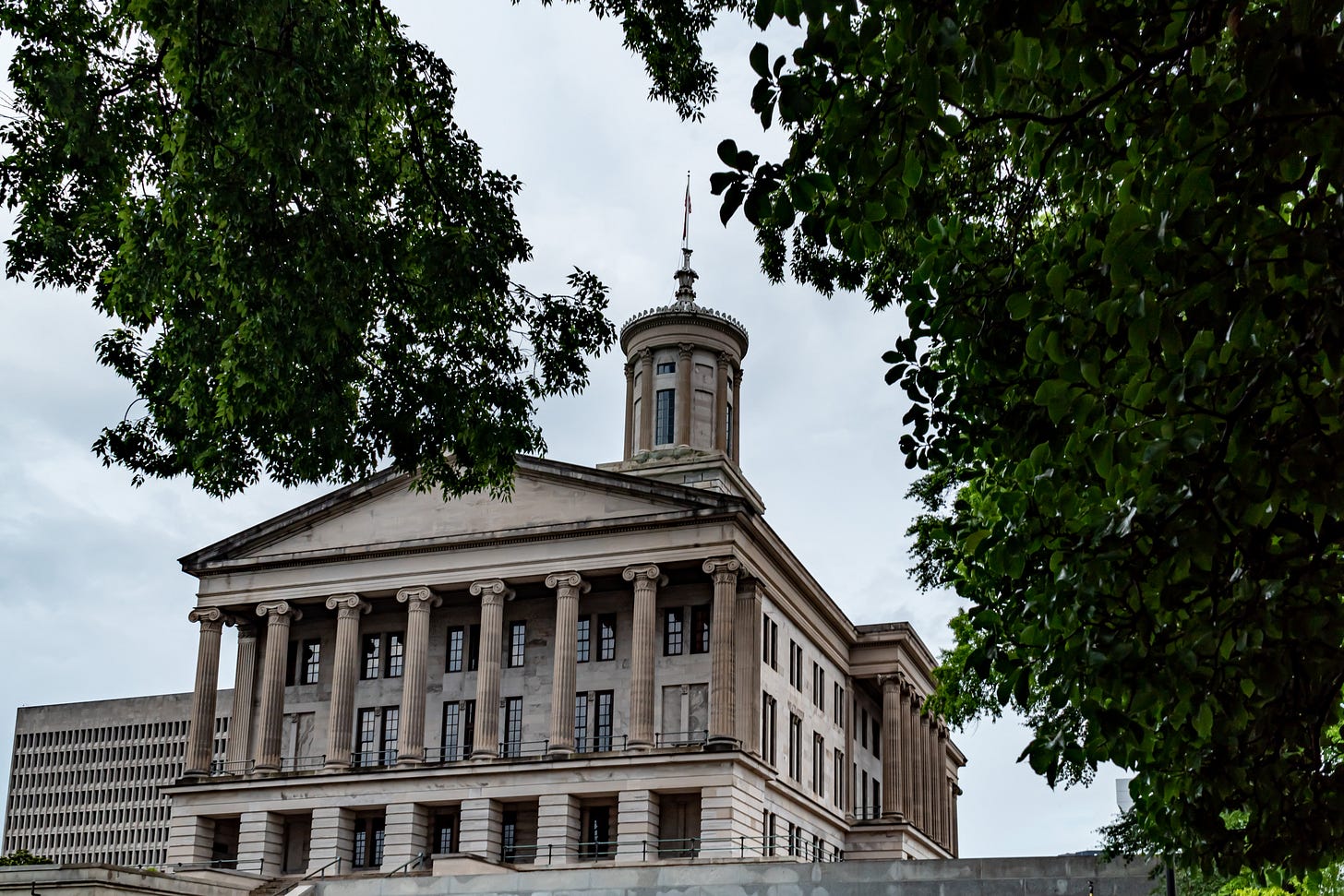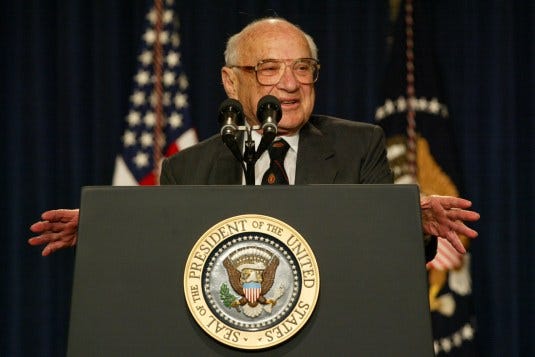When Everybody Gets a Trophy…
Education Freedom is Doomed
But first, the hottest news in the past week has been the Nation’s Report Card. Thousands upon thousands of articles have been written and there is no debate:
U.S. EDUCATION CONTINUES TO FAIL A MAJORITY OF STUDENTS.
Only 31 percent of students in 4th grade and 30 percent of students in 8th grade are reading proficiently, a 2 percent and 1 percent drop respectively from 2022. Scores in reading have dropped 10 points since 2019.
And finally, Americans know it, thanks to increasing coverage of the problem, which we used to beg reporters to report. A Gallup poll held before the results came out found only 24 percent of Americans are satisfied with public education. They know, and it’s the least advantaged parents who know it best.
So, if most everyone knows education is failing, why then aren’t the nation’s most powerful leaders willing to put everything on the line to do something extraordinary about it?
Parents Need Choice, Not Charity
“The purpose of vouchers is to enable parents to have free choice, and the purpose of having free choice is to provide competition and allow the educational industry to get out of the 17th century and get into the 21st century.” - Milton Friedman, 2003, Nobel Prize winning Economist
I’m about to step on some toes and it’s not because I relish doing so.
Volunteer State Governor Bill Lee is a great man who I admire. Truly. He and his team support the right things, are good to education reformers, parent advocates and especially constituents and the people most in need. The Governor has been especially vocal in his support for getting education freedom done this year. But he may have been steered wrong on Tennessee’s new choice law, called the Education Freedom Act (EFA), which has been given an unnecessarily huge trophy.
To be blunt, Tennessee’s school choice bill is more like charity, not choice. And it didn’t have to be.
The Law.
The EFA authorizes a scholarship program for 20,000 students to receive about $7,000 each to attend accredited private schools. Half are limited to lower income and disadvantaged students, and the other half are available to all students, presumably decided by lottery. This latter aspect earned the new law the title of “universal” but it’s not. Universal is when something both has no limitations and is accessible to everyone. Eligibility may be “universal” for a portion of participants, but it’s not accessible by all.
The Tennessee program is funded by $420 million in new monies. Unlike most choice programs, it is not funded from the state’s general education fund. Tennessee provides a base foundation payment for every student, additional weighted funding based, and other funding streams geared at instruction and performance.
Tennessee's new law provides for a $7,000 scholarship coming out of the general treasury, beginning in the new school year, this September. That funding is in addition to the $7,025 that is allocated through the state’s general education funding formula per student (TISA) for every student in the state for the same school year. So, the scholarship funding is on top of, not the same funding, that is allocated for public education per student in the state.
According to the TN Department of Education, “It is important to note that the TISA funding formula relies on the prior year data to drive subsequent year allocations.” That means that districts are held harmless for at least a year, and most likely two, before students are no longer counted for a district’s base funding.
Even after students who leave are counted for TISA funding, another $250 million in additional state funding is distributed annually to districts across the state and not tied to student counts in the system. This new law also makes a one-time bonus of $2,000 per public and charter school teachers available, not all teachers who teach kids.
There is an important fact that often gets overlooked in our zeal to get a bill done - choice isn’t supposed to feel good. It’s actually supposed to create some pain to the system that is broken. Milton Friedman argued that free choice is the lever to educational improvement. He was right. The earliest and best voucher programs showed us the power of choice to not only give students life-saving options but to shake up systems and make all boats rise.
Unlike Friedman’s vision in which meaningful competition occurs through parental choice, Tennessee’s parents don’t control the funds; the state does. Parents are not empowered to move “their” education dollars. They are getting new program funds to spend, while local taxpayer education funds, some state and some federal funds that were allocated for their child’s education stay in the district.
Texas is Similar. The same is the case for Texas SB 2, passed this week by the Texas Senate. Claiming it will be the largest single choice program out of the gate ever, advocates are cheering it on as it moves to the House. The problem is the program is just that - a program. It’s not a legal change in how education is managed in the state. And there is no impact on the districts’ schools when students leave, at least not for a couple of years when the state foundation funds perhaps don’t get sent for the kids who left. Local dollars will still fund the districts as if all the students are still there. It’s called Hold Harmless. I wrote about it in the Wall Street Journal in 2023.
In addition, the law’s administration is unnecessarily complex, whereas the best laws simply allow the transfer of funds to schools or educational programs the parents choose.
Model Choice Laws.
It wasn’t too long ago that Iowa enacted the first and most ambitious statewide program coming out of Covid. Governor Kim Reynolds in 2023 fought for and secured support for the Students First Education Savings Account (ESA) Program, a program that allows funds to follow students. The same occurred in West Virginia under the leadership of State Senator Patricia Rucker. The Hope Scholarship Program is ranked #8 for being one of the most expansive education savings account (ESA) programs in the country. The program allows parents to direct 100% of state education funding toward non-public education options, including private school tuition and other educational services.
Similarly, North Carolina is #5 on the Parent Power! Index. The program ensures that state funds follow students to their school of choice and will be available to all families by 2027. And that’s in a purple state. And of course, Arizona (#2), Florida (#1) and Indiana (#3), where Friedman’s legacy foundation EdChoice is based are the top three states for parental choice and are all models of how the concept of giving parents the freedom to choose where to spend one’s state education tax dollars can improve the education climate and provisions for everyone.
When I read that the Tennessee Speaker of the House Cameron Sexton told the New York Times that“President Trump being in favor of school choice has really helped us,” after the president tweeted out his support for the Tennessee effort… it made me think: “Well then Mr. Speaker, with that much power behind you, you should have passed a real school choice bill!”
I appreciate that not all states will do it the same way.
Programs can and should differ with local needs and opportunities. But the very concept of school choice is undermined when states make the politically expedient decision to trade votes for protecting the status quo and advocates cheer it on as if it’s the best thing that has ever happened. And how many taxpayer-conscious lawmakers believe adding new appropriations to the state’s budget - that they are forced to vote on every year - is a good thing?
Additional analysis of this issue is needed and will be ongoing. The most important lesson is not whether we should stand in lock step and praise those who make the effort, but whether lawmakers enact programs that provide for the freedom parents need, and the conditions for supply to grow. That’s the recipe for success, which also requires beginning to demand that full and fair funding follows kids.
I am happy for the families for whom scholarships are life savers - as long as the state can keep it up. But it’s charity, not choice, no different than state funding subsidizing day care or a meal program. The idea is nice, and maybe it’s politically expedient. But it’s not transformational. That said, I would be beyond ecstatic to be proven wrong.
Diners, Drive-Ins and Dives
Speaking of Texas, it’s not every day that a great youth focused organization makes it onto the famous Guy Fieri show, but that’s exactly what is happening for Café Momentum, a finalist for the 2024 Yass Prize and winner of a $500,000 STOP Award. It’s also a restaurant where justice-involved youth earn their high school diplomas or GEDs in a unique environment that blends an academic education with hands-on restaurant training. Students unlock their full potential, ensuring that every graduate is prepared for a living-wage job or a future in the military or higher education.
Need Additional Reasons to Enact Real School Choice?
Catholic schools outperform the rest, despite comparable student bodies. The more money that follows kids, the more such schools could reliably and dependably expand.
Don’t Shoot the Messenger! Facts are facts, data is data. We can all be friends, but we have to be honest ones. It’s about the kids, not the adults. Pace. - Jeanne







I enjoyed this article.
Readers may be interested in my thoughts on the use of language by educators and the influence (mind control?) this can have on students:
https://open.substack.com/pub/djmurphy14/p/educators-beware-the-power-of-language?r=278upp&utm_medium=ios